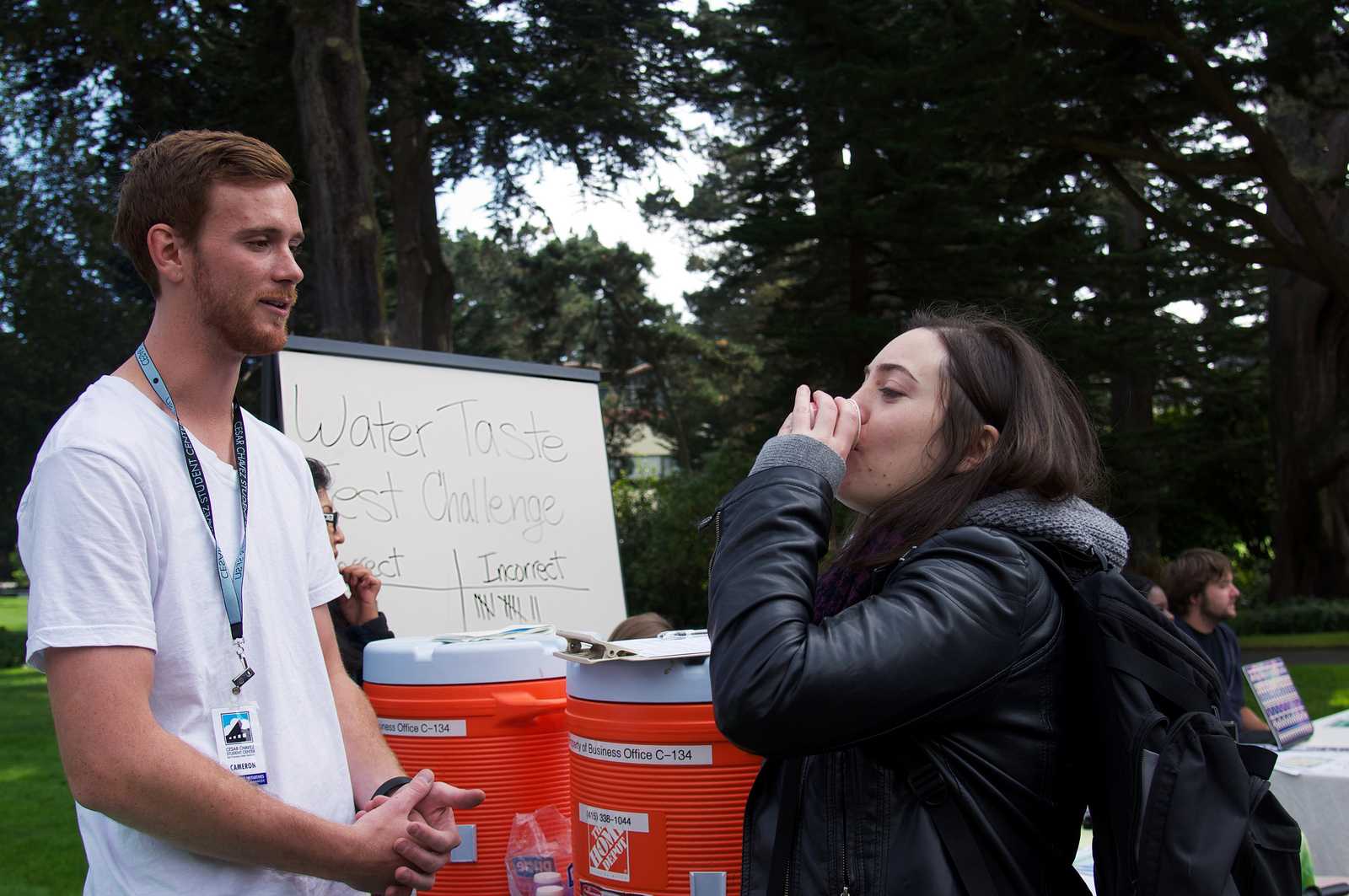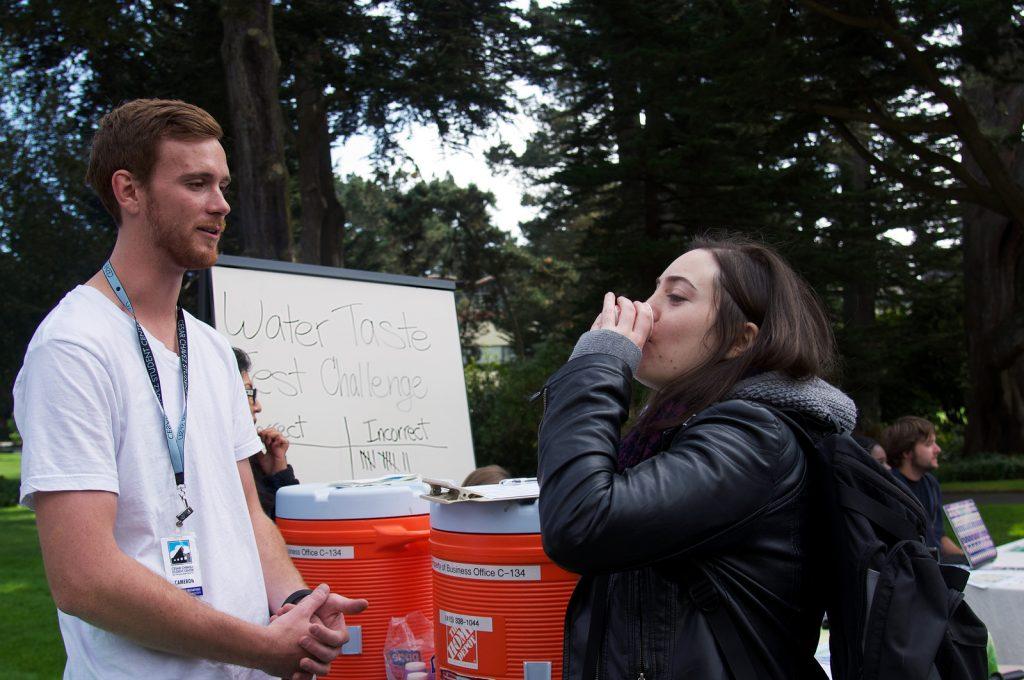
The Green Initiative Fund (TGIF), a student organization at SF State, attempts to ban the sale of all single-use plastic water bottles on campus, using last week’s Sustainability Fest as a platform for its cause.
At the two-day SF State Sustainability Fest, TGIF hosted a water taste test challenge, which aimed to show students that when they remove water from a plastic bottle, tap water tastes the same, and it’s better for the environment.
“The bad thing about single use plastic water bottles is that it creates waste, a lot of the time they don’t end up being recycled, and if they do end up being recycled, only a certain amount of material is transferred and remade into a new product,” said Cameron Bingley, sustainability manager for the Cesar Chavez Student Center.
Only 8 percent of the total plastic waste generated in 2011 was recovered for recycling, according to the Environmental Protection Agency’s website.
Environmentally unfriendly products such as plastic bags, Styrofoam, phone books and even Happy Meal toys have all been banned from San Francisco.
Former mayor Gavin Newsom also passed legislation in 2007 that prevented city departments from purchasing bottled water, which saved the city nearly $500,000 a year.
The SF State campus branch of TGIF works with student and staff organizations, like ECO Students, Sustainable SF State and Associated Students, Inc., to convince them to switch from buying single use plastic bottles to using reusable bottles, according to Cain Buckler, co-president of TGIF.
TGIF, a group which began at the University of California Santa Barbara in 2006, is a grant-making fund for student-led sustainability projects on campus, according to the California Student Sustainability Coalition website.
Since 2006, it has grown to include six other UCs.
Students at UC Santa Barbara voted to pay a student fee of $2.60 per quarter for their Green Initiative Fund, according to Jewel Snavely, the Campus Sustainability Coordinator and TGIF Manager at UC Santa Barbara, which brings in roughly $150,000 a year.
Along with the plastic bottle expulsion, TGIF follows the footsteps of other campuses and to secure a source of funding for sustainable initiatives.
Students from other universities are charged a student fee ranging from $2 to UC Berkeley’s $6 to finance sustainability projects, SF State’s TGIF proposed a $3 student fee, but were denied because of regulations regarding an increase in student fees.
SF State has been supportive of green-type initiatives but has been reluctant to implement a student fee, forcing TGIF to turn to their fellow Gators for help.
“It only says so much coming from a couple mouths but if it’s coming from all students’ mouths it would be amazing,” Buckler said.
The lack of funds for TGIF can potentially halt future projects, so the group took its case to the student body at this year’s sustainability fest where they advertised their organization.
“They’ve (The University has) been supportive of green type initiative and projects, but have not been completely on board behind giving us a source of funding like other schools have,” Buckler said.
The ban on single-use plastic bottles would leave Gators unable to purchase bottled water on campus, but the group has offered solutions that would accommodate the loss.
One solution would increase the number of water bottle refill stations including the installation of 20 stations expected to be installed during the winter break.
Another solution is the reusable water bottle drive, which takes reusable water bottles that are left in lost and found, thoroughly cleans and returns them to students who want a reusable water bottle.
After the water taste challenge at the Sustainability Fest last week, TGIF members explained to participants that the tap water is a better alternative than bottled water.
The group concluded that people preferred tap water to bottled 37 to 31.
San Francisco’s tap water is quality tested more than 100,000 times a year and is heavily regulated by state and local water regulations as well as the Environmental Protection Agency, according to the San Francisco Public Utilities website.
“I know we are really lucky in San Francisco, it’s something that I’m used to and it’s (tap water is) something that we should appreciate,” said Daisy Gerstein, a design and industry major who participated in challenge.





